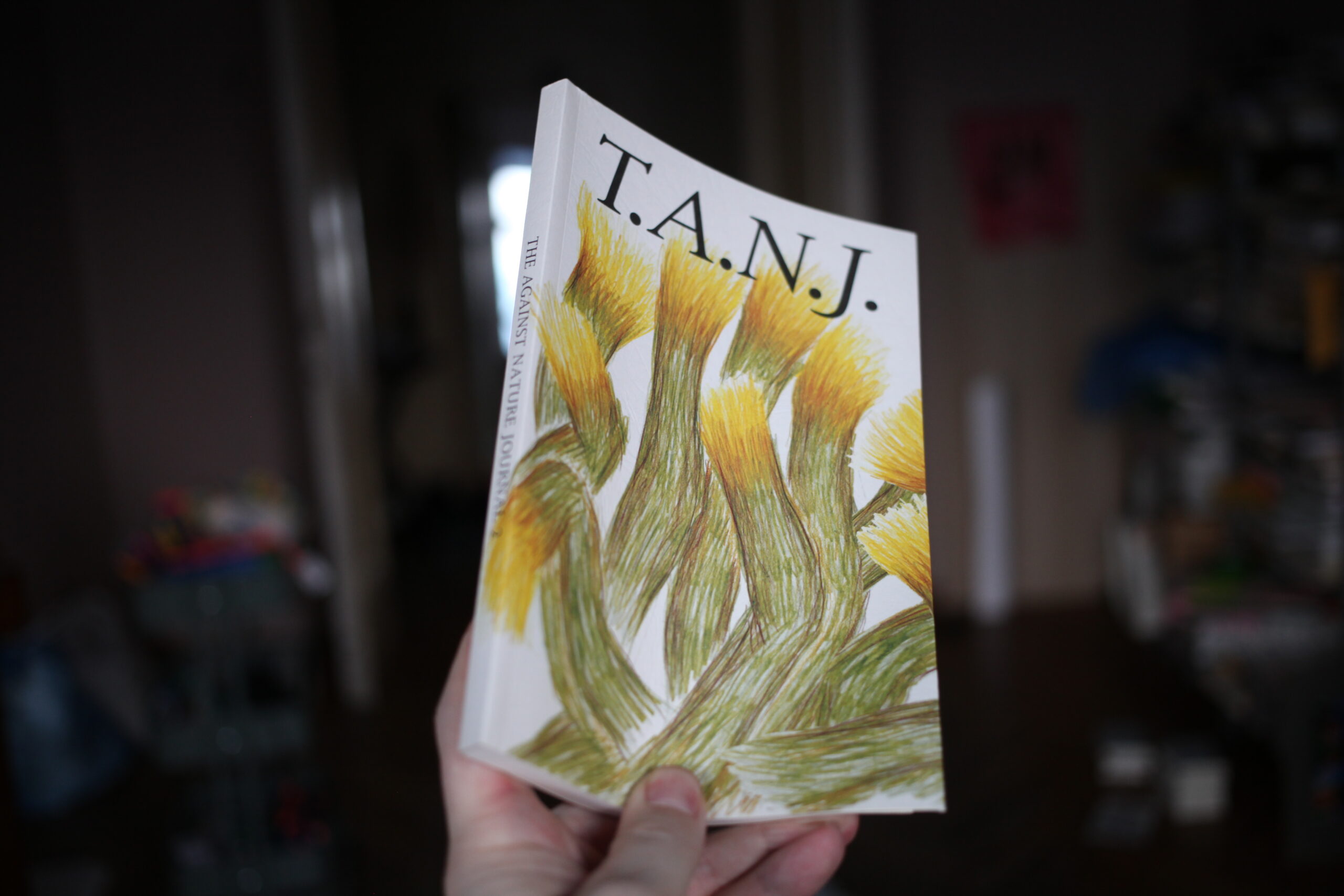Rethinking Migration

Written by editors Aimar Arriola and Grégory Castéra, this text serves as the editorial piece in The Against Nature Journal (T.A.N.J.) issue #2, published by Council in 2021.
The second issue of The Against Nature Journal revolves around the theme of migration, a crucial topic when addressing the experiences of LGBTQI+ individuals who have been displaced from contexts where “nature” is still used as an argument to criminalize consensual same-sex conduct or gender expression, as well as the broader questions of trans- national rights and activism, and the trafficking of knowledge and customs.
The first section of this issue presents two different approaches to claims for asylum related to sexual orientation. WARUGURU GAITHO’s legal analysis focuses on a 2013 judgment from the Court of Justice of the European Union regarding three asylum applications in the Netherlands from nationals of Sierra Leone, Uganda, and Senegal. Her review of the case shows up the contradictory position of the EU on immigration and the differing conceptions of refugee and asylum seekers’ rights by EU countries. It also reveals the very nature of court decision-making, where progressive gestures often go hand in hand with regressive moves. Activist and writer CARL COLLISON shares a journalistic story based on a Zimbabwean national seeking asylum in South Africa due to sexual discrimination in his home country. Collison’s piece also considers desire and aspiration as reasons to migrate, while dealing with questions of representation.
The central section focuses on political, cultural, and historical processes of “othering,” that is, of perceiving or portraying someone or something as essentially alien or different. Both the symbolic and pragmatic mechanisms of constructing an “other” are key to the rhetoric of migration policies. Gender studies scholar JASBIR K. PUAR coined the term “homo- nationalism” to explain how queer identities are used by the nation-state against Brown, usually Muslim, others. We are fortunate to be able to republish Puar’s influential essay “Rethinking Homonationalism” (2013), which is accompanied by a new introductory note by the author. Her concept sits in close relationship with the main concerns of our project, and so our engagement with it does not end with this issue; rather, we think of homonationalism as a transversal question that will continue to inform the journal. The vibrant essay by FATIMA EL-TAYEB advocates for queer intersectional critique to denounce structures of oppression, including global migration policies. In doing so, she reflects on the possible meaning of a queer “we,” which connects her text to Linn Marie Tonstad’s essay in our previous issue and to further commissioned texts on this term in issues to come. In our interview with activist and legal researcher ALOK HISARWALA GUPTA, we explore how India is central to understanding the historical expansion of against nature laws, showing that it is not only people but also laws which cross borders. The conversation considers Gupta’s earlier LGBTQI+ activist work in relation to his current animal rights activism, troubling the di- vision between human and nonhuman animals. All three contributions offer powerful propositions for reviving the potentiality of queer politics: through acknowledging racism, patriotism, and terrorism (Puar); incorporating intersectionality in theory and action (El-Tayeb); and by considering animal rights in the fight against oppression of all forms of life (Gupta).
While the question of queer migration calls for an overview of the structural, transnational processes that occur when queer subjects cross borders, it also asks for a more personal reflection of the everyday diasporic experience. Thus, the final section brings together several voices that offer insights into migration on a micro level. Writer and filmmaker ABDELLAH TAÏA’s short story is a firsthand account of the xenophobia that a young Moroccan migrant typically faces in France.Taïa is an iconic figure in the Arab world and beyond; his contribution to T.A.N.J. is part of his fervent fight for LGBTQ+ rights globally. The four-part poem by DIVYA VICTOR from her forthcoming book CURB (Nightboat Books, 2021) links desire, feeling, and the personal to the process of applying for an Alien Relative visa in the United States post-2016, when hate crimes committed against South Asian migrants only escalated. GLORIA ANZALDÚA (1942–2004) explores the alienation and homelessness experienced by many queers in her poem “Del Otro Lado” (Of/from the other side). The work of this significant author of feminist and queer theory—and a great inspiration to many contributors to this issue—was informed by living on the Mexico–US border and her personal experiences of social and cultural marginalization.
The journal’s regular features continue in issue two, including the section devoted to rethinking the notion of “against nature.” This time, a reprint of the introduction by ZEB TORTORICI to his book Sins Against Nature (Duke University Press, 2018) traces the construction, development, and consequences of sodomy laws in colonial New Spain through a passion- ate engagement with the archive. This issue also includes our Columns section, with reports from Brazil, India, Kenya, Lebanon, Morocco, and the UK, many of which reflect on the ways the Covid-19 pandemic has impacted queer lives.
Lastly, this issue on migration presents a significant visual intervention by artist ZOE LEONARD, who has shared with us a number of photographs from her ongoing project Al Rio/To the River (2016–). Through seriality and repetition, these images emphasize the quotidian movements of crossing the river border between the US and Mexico, and explore the complexities of representing the many lives that touch its currents.
TEXT BY
Aimar Arriola
Grégory Castéra
This text serves as the editorial piece in The Against Nature Journal (T.A.N.J.) issue #2, published by Council in 2021.
Top image : T.A.N.J #2, 2020, Council. Ph. by Stepan Lipatov
T.A.N.J. #2
Articles
Rethinking Migration
— Aimar Arriola & Grégory Castéra
A Note for Al Rio/To the River
— Tim Johnson